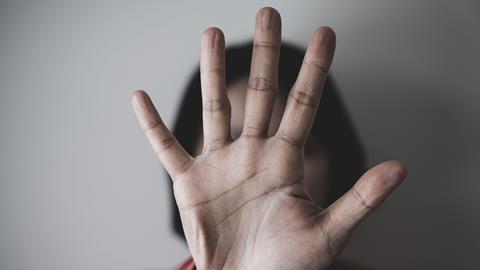Dr Belle Tindall highlights the struggles women are facing in South Korea, and the feminist movements that are rising up
Have you heard of South Korea’s ‘4B’ movement? Admittedly, I hadn’t. But now I have, and I am fascinated. A little sad, too. To my shame, I was completely unaware of the deep fracture that exists between men and women in South Korea and, subsequently, how hard it is to be a woman there.
In South Korea, women are facing widespread sexual assault and harassment, domestic violence, an epidemic of revenge porn and a rising number of femicides. What’s more, women are expected to adhere to pretty heavy-duty beauty ideals and so-called traditional gender roles. I’m very aware that these are particularly sweeping statements, and I have zero doubt that there is far more nuance to be wrestled with, but all the homework I’ve done seems to be telling me the same thing – on the whole, it’s harder to be a woman in South Korea than you may expect.
Saying no
In recent years, there’s been a bubbling up of resistance. Radical ‘feminist’ movements are popping up all over the place, and 4B is one such movement.
4B is a shorthand – ‘bihon/bi’ is ‘no’ in Korean, and so the 4Bs are essentially four things that women in South Korea are saying no to:
No (heterosexual) marriage.
No children.
No dating.
No (hetero)sexual activity.
Women within the 4B movement are ‘practising bihon’, they’re practising saying, and living out, a definitive ‘no’ to men they believe to be beyond redemption and a patriarchal culture that is beyond reform.
Gut-wrenching, isn’t it? Like multi-layered horribleness. Celibacy in and of itself isn’t a problem, it’s a rich, beautiful and seriously underrated way of life – but celibacy as a means of eliminating risk? Gosh, my heart breaks thinking about every woman who has found this to be the safest way to live their lives. They are closing themselves off, angling themselves against violence and prejudice – often resulting in a complete distancing from all men, including friends and family.
The aim is a completely male-less existence.
When we talk about the fracturing between men and women, this is on the extreme end of the scale. And, I have to make clear, I’ve never experienced anything like it. My context is not the same. If yours is, for whatever reason, I’m so sorry. As I sit here writing up this article, you have my prayers as well as my words.
Urged to hate men
While most of us are not, and probably never will be, members of the 4B movement – there is something the teeniest bit familiar in it. And that is the complex urge to hate men.
Don’t panic. That’s a big sentence, I know. Let me explain.
Some types of Western feminism tell me that I should hate men – not on an individual basis, they’re not advocating for me despising my dad, my boyfriend, my best friend’s toddler or my elderly next-door neighbour. Rather, they encourage me to hate the demographic of people who continue to be the greatest threat to women’s safety and wellbeing. Let’s call them Men – with a capital M.
The Men who make me feel uneasy at the prospect of walking alone at night, the Men who keep getting promoted ahead of my friend even though she’s better at her job, the Men who made Andrew Tate rich and famous, the Men whose behaviour inspired the 4B movement.
And, I must admit, it can be tempting.
These types of feminism play into that righteous anger I feel when I read about the need for something like the 4B movement. They tell me to turn such anger into a personal and political contempt. And, cards on the table? Occasionally, they get their way.
A completely male-less existence – when the fantasy hits at just the right time – sounds pretty OK to me. Sometimes I find myself thinking that the less testosterone in the room, the better.
Resisting the urge
But here’s the thing…
Some of the best people I know are men. Some of the truest feminists I know are men. I adore them, I believe in them, I trust them and am more thankful for them than I could ever put into words. I wouldn’t be who I am without them (literally, in one case, thanks Dad). And capital-M-men, that’s a community made up of lowercase-m-men.
So, it’s complex.
What’s more, as much as I occasionally wish that it did, my faith really doesn’t afford me the luxury of hating Men/men. Complete and utter harmony between the sexes was what was intended, and what will one day be. We’ll experience total connection, devoid of all the broken bits that we know so well. And that’s what Christian feminism strives for; to pull the ‘there and then’ into the ‘here and now’.
That’s why, as a Christian feminist, I find the (legitimate) need for the 4B movement so sad. Because a wholly male-less existence, however necessary, couldn’t be further from God’s dream for the women of South Korea.


































No comments yet